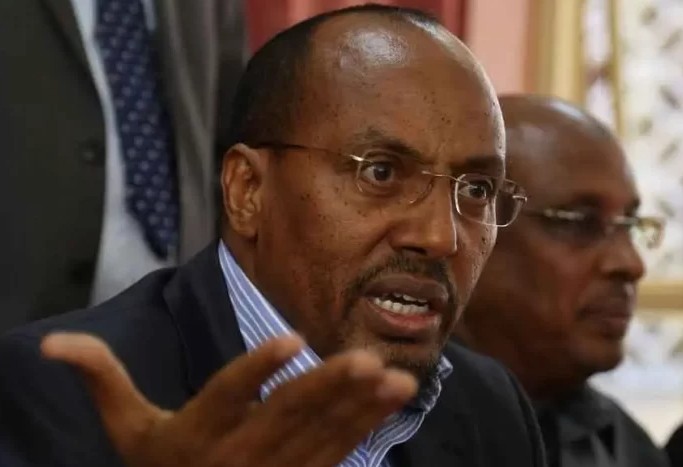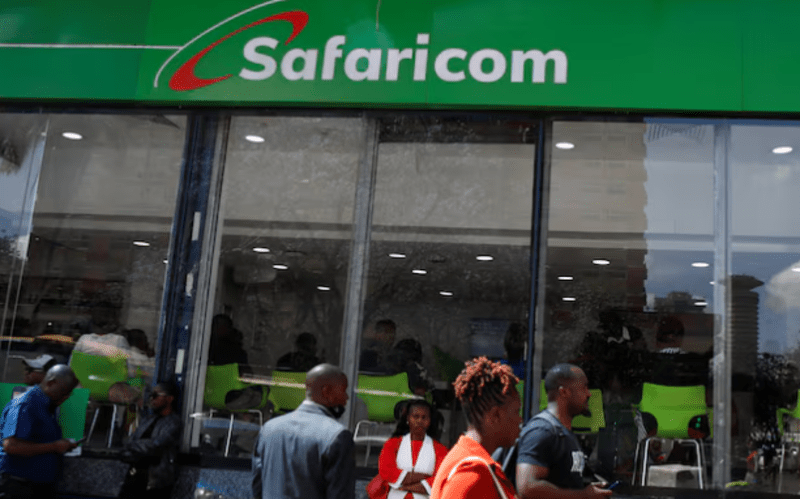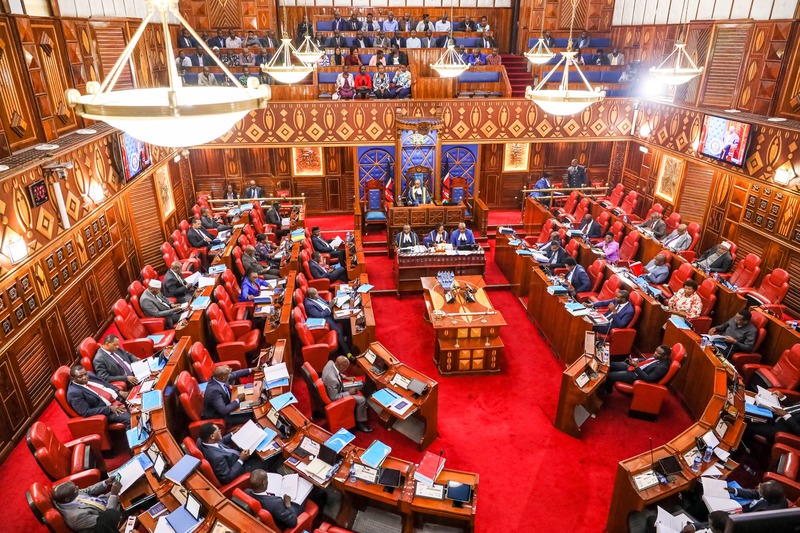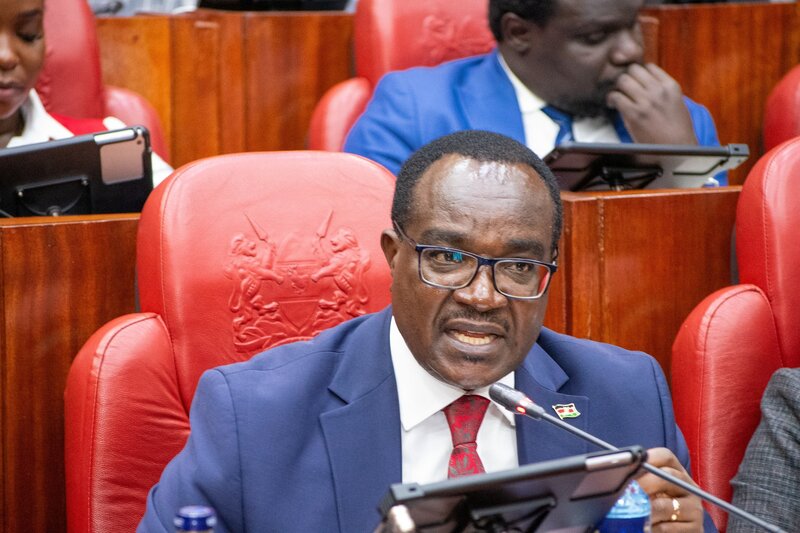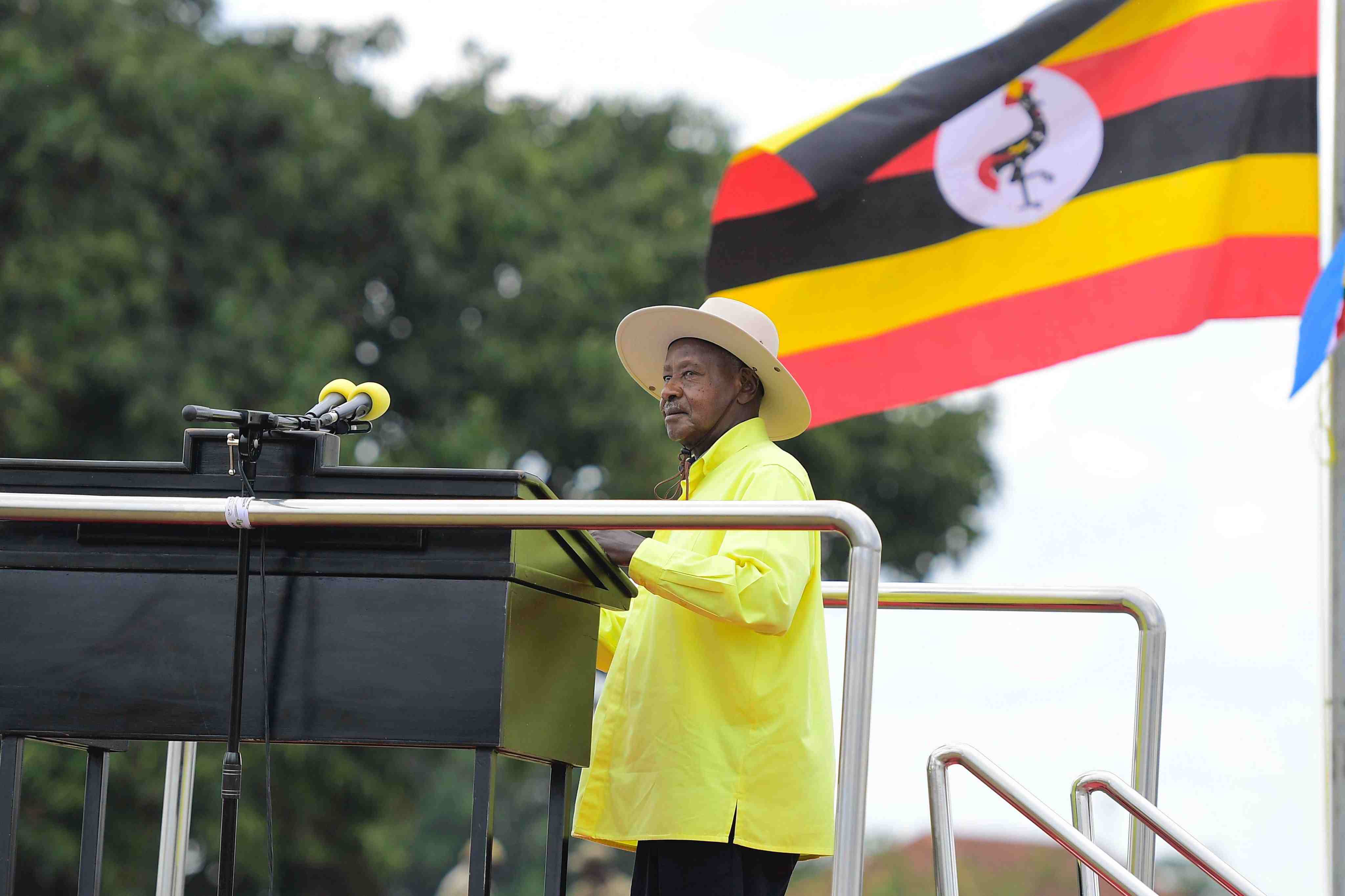Why Ruto’s anti-corruption stance is a 'political gimmick' to win public support - Rights defender Peter Kiama
President William Ruto's recent claims that Members of Parliament are engaged in bribery have stirred diverse opinions on his sincerity and efforts against the cancerous vice.
President William Ruto's recent claims that Members of Parliament are engaged in bribery have stirred diverse opinions on his sincerity and efforts against the cancerous vice.
While others think it's a Damascus moment for a president seeking public approval to earn a second term, some observers see it as a political gimmick. The Eastleigh Voice Political Reporter, Barack Oduor, spoke to Human Rights Defender and Executive Director of Haki Yetu Organisation, Peter Kiama, on Ruto's pronouncements and the unending standoff between the Inspector General of Police and the National Police Service Commission over payroll and other roles.
More To Read
- ICJ-Kenya appoints Demas Kiprono as executive director
- Rights experts sound alarm on AI’s potential to target activists, undermine electoral integrity
- UN human rights experts visit Kenya privately amid concerns over crackdowns, civic freedoms
- Five traffic cops nabbed in EACC sting operation over bribery on Kisumu–Busia highway
- Churches to Ruto: Provide evidence and act on MPs' bribery claims
- Deputy Speaker Gladys Shollei lauds committees as Parliament’s ‘engine room’
Q: The 2010 Constitution is in its fifteenth year now, and looking at its gains in governance, do you think we have been able to deal with matters such as corruption in relation to studying President William Ruto's administration commitment in fighting against this cancerous vice?
A: I think my understanding of the president when he was meeting MPs is a demonstration of the highest level of hypocrisy because the UDA Party manifesto did not have a single word on the fight against corruption. Actually, his key advisors at the time he was seeking to get elected were telling us that corruption is not their priority, and I haven't seen any indication to show that the position has changed.
In my understanding, the president's recent remark on Parliament is basically a continuation of his notorious rhetoric that has no substance. In fact, what the presidency has been doing, as we knew from the beginning, is that he is going to spend the next 23 months before the elections to entice himself in the eyes of the public because he has already lost huge public support.
What he is doing now is to throw everybody under the bus so that he emerges as the hero in the eyes of the people. I think he still has no serious commitment against corruption.
Q: How can you say Ruto isn't committed to the war against corruption when he just formed a committee of multi-agencies to wage war on it?
A: Remember, the most corrupt institutions are within the executive, and he has appointed this multi-agency team to fight corruption. You cannot set a thief to fight a thief.
The multi-agency team against corruption in Kenya is a non-starter because it is very clear, and the latest report from civil society organisations has clearly shown that the institutions that are mostly immersed in corruption are within the executive.
If he has not been able to fight corruption under the National Police Service, which is under his office, how can we trust him to lead the war against corruption, because this committee is going to report to him?
He has also become notorious in the last few years of his tenure in destroying independent institutions and constitutional commissions, either by denying them funding or by appointing people who are incompetent or people who are not committed to constitutionalism. In this particular appointment of the multi-agency team, he has demeaned the role of the EACC because they have been subjugated to a very junior role in that committee.
Q: President Ruto recently announced a framework to have victims of police brutality and those who lost their lives in such a way get compensated. Don't you think this is a welcome move towards getting justice?
A: To me, this is a political deal between two men who don't care at all about victims and their families. I think the president has become notorious for throwing money at problems, thinking that money is going to solve our problems, and I want to tell him that money does not solve problems if it is not channelled through the legally established and policy channels.
I have served on the board of the Victims Protection Board under the office of the Attorney General, and for over 10 years, the government has refused to operationalise the legally mandated institution to compensate victims of violence and other crimes.
The Fund has not been established because the government has not passed the regulations to guide how it is going to operate, like how the victims are going to access the Fund. During my time on the board, we struggled to get the funding to develop the regulations. Ruto promised to make this happen. Why has it taken him three years to do so when it was in the manifesto of his party?
Why is he circumventing the legally established victims' compensation mechanism and establishing another under his office that is neither legal nor under any known policy?
Q: So it means the president is out of order and wants to achieve something else from this framework? What exactly, in your view, do you think are his intentions?
It is a continuation of his effort to destroy institutions and make him the big man. He is pursuing a big man syndrome where all solutions come from him, and this demonstrates the key pillars of establishing a dictatorship.
Dictatorship starts with destroying institutions and making yourself the only go–to person for all problems. This is another nail in the coffin of independent institutions. Why would he not gazette the regulations for the Victims Protection Fund, and why would he not allocate funding under that and allow various established mechanisms to manage the compensation?
I don't think throwing money at victims will solve the problems of police brutality, police extra-judicial executions or police misuse of firearms.
The pillar of justice the president never talks about is the assurances of non-repetition that come from two things: an apology, which is an acknowledgement that the government committed a crime and a clear public statement that they wouldn't do it again.
They have not assured the victims that there will be no more killings or further disappearances.
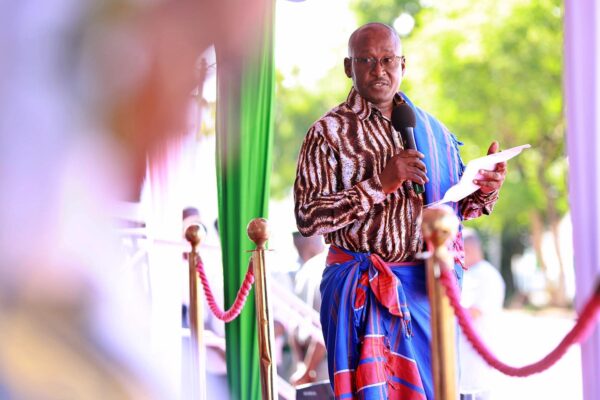 Haki Yetu Organisation Executive Director Peter Kiama last week, when he led the organisation in welcoming Chief Justice Martha Koome to Mombasa for the launch of the County Action Plan and the Alternative Justice System Centre. (Photo: Haki Yetu)
Haki Yetu Organisation Executive Director Peter Kiama last week, when he led the organisation in welcoming Chief Justice Martha Koome to Mombasa for the launch of the County Action Plan and the Alternative Justice System Centre. (Photo: Haki Yetu)
Remember, we had the Truth, Justice and Reconciliation Commission (TJRC) Report that recommended a mechanism for compensating victims, Ruto has a majority in Parliament, and for the last three years, he has not even dusted that report to start the process of compensating the victims in that report started.
Q: There have been disagreements between the National Police Service Commission (NPSC) and the Office of the Inspector General. What is bringing these when there's a clear definition of roles for both offices or bodies?
A: That conflict is beyond what we are seeing on the surface. The battle for the police budget is bigger than the IG and the NPSC. Remember that the Ministry of Interior, for many years, has been getting a budget of over 100 billion. About 80 per cent of that budget should be under the IG of Police. However, for a long time, the Office of the President at Harambee House has controlled the Police budget when it should be done from Vigilance House.
The money, for example, for police housing, has been divided between the ministries of transport, finance and housing. The money for police housing has never been with the inspector general since the country's independence.
This is a battle we have taken to the doorstep of the Interior Cabinet Secretary after we did an audit of the police budget, and we realised that if you took away that budget from the Ministry of Interior, the docket would remain with just a small budget for national government administration.
Q: What could then be the underlying interests in the conflicts?
A: The interest is corruption, like in the deals that are made in purchasing vehicles and building houses. These kinds of deals have actually haemorrhaged the police budget, making the inspector general very vulnerable in managing the resources and driving the very resources to the police stations where they're needed.
Up to 2018, police stations never received any allocations or authority to incur expenditure. The Officer Commanding Stations (OCS), who is the operation officer of the station, whom everybody goes to for solutions, was not controlling any funds. We, through the Police Reforms Working Group, lobbied the Minister for Interior to make OCS manage funds. They now manage funds directly as opposed to previous situations when they had to go and beg OCPDS.
Q: What does the Constitution say about who should be managing the payroll of police officers?
A: The Constitution is very clear; the payroll, which is a human resource function where it falls, falls under the mandate of the National Police Service Commission. Such situations are the reasons we lobbied for a Principal Secretary to be appointed at the office of the Inspector General of Police so that he or she can manage the monies meant for housing, vehicles and even weapons.
The only reason why Kenyans set up the NPSC is to ensure that the police are professionally managed, which has not been the case. How, for instance, do you have an officer who joined the service 30 years ago as a constable and has not been promoted yet others are getting their promotions fast-tracked? How does that happen?
We wanted a professional, independent body to manage police officers as professionals in their own right. That has not happened. Today, the level of frustration among police officers is so high, especially among the junior ranks.
Top Stories Today




